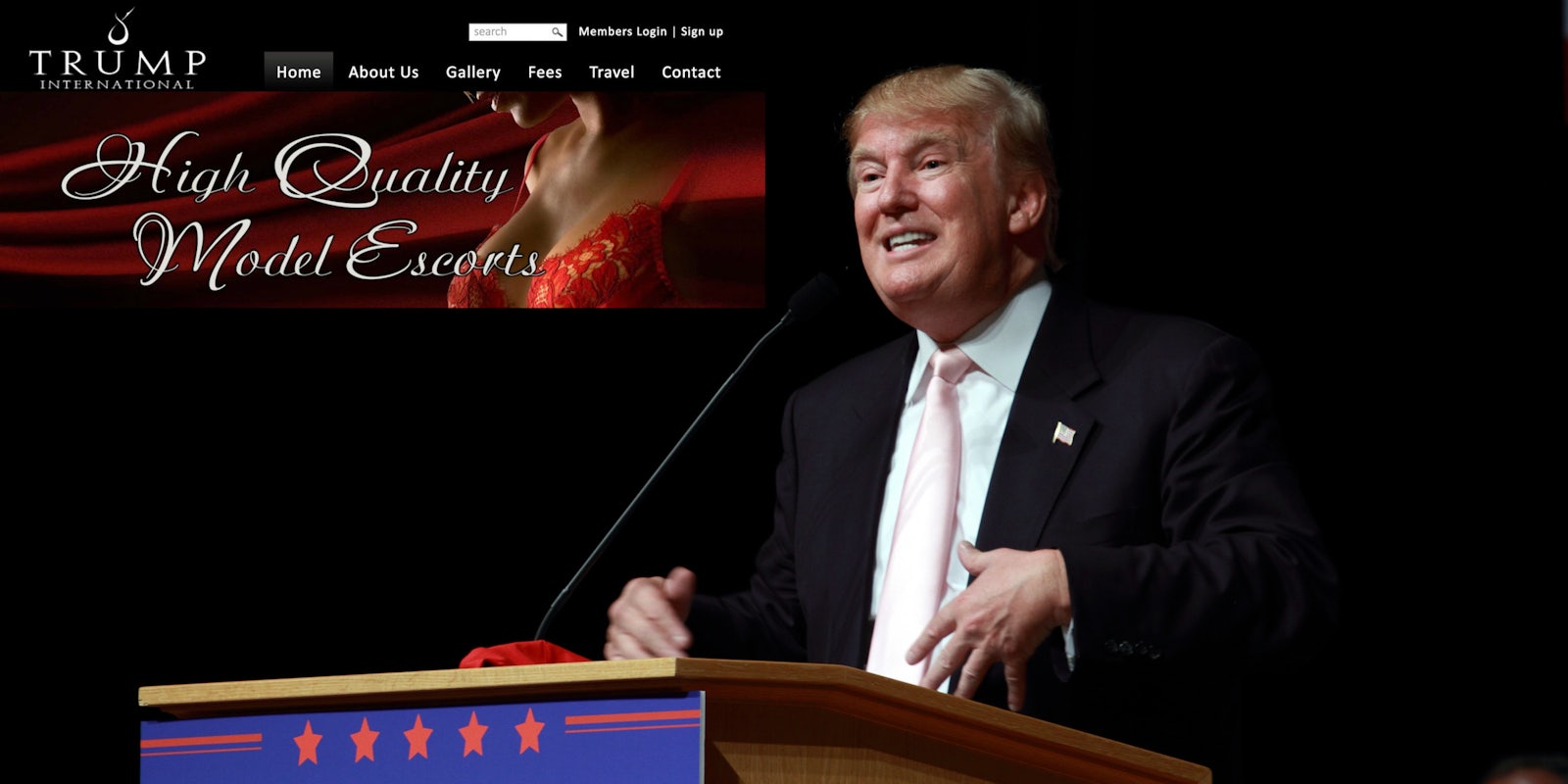China’s swift approval of nearly 40 Trump trademark requests has raised questions about the president’s involvement.
The Associated Press reported on Wednesday that Beijing has approved 38 new trademark requests by Trump’s lawyers, for a range of products and services including Trump hotels, Trump insurance, Trump massage parlors, and even a Trump escort service. It’s unclear whether President Donald Trump, who vowed not to pursue foreign business deals while in office, plans to actually partake in any of the ventures.
In the case of the escort service, at least, Trump likely obtained the trademark to protect his brand from “trademark squatters” rather than to launch his own escort service in the country, according to analysis by the Washington Post.
The Atlantic reported that after a decade-long fight with China’s legal system, the Trump Organization on Feb. 15 won the sole right to use the president’s name in China. China’s decision came just a week after Trump agreed to adhere to the One China policy in a phone call with China’s president, Xi Jinping.
Ethics and intellectual property lawyers were surprised at China’s swift approval of the Trump trademarks and questioned whether it was a move on China’s part to curry favor with the U.S. government. Trump’s open questioning of U.S. relations with China set off anxiety in the nation’s government, some of which subsided last month when the president agreed to adhere to the One China policy.
Simone IP Services director Dan Plane told the AP that he had never seen so many applications approved so quickly.
“For all these marks to sail through so quickly and cleanly, with no similar marks, no identical marks, no issues with specifications—boy, it’s weird,” he said.
Were Trump to receive preferential treatment from China, it would likely violate the U.S. Constitution, which forbids officeholders from receiving any item or favor of value.


